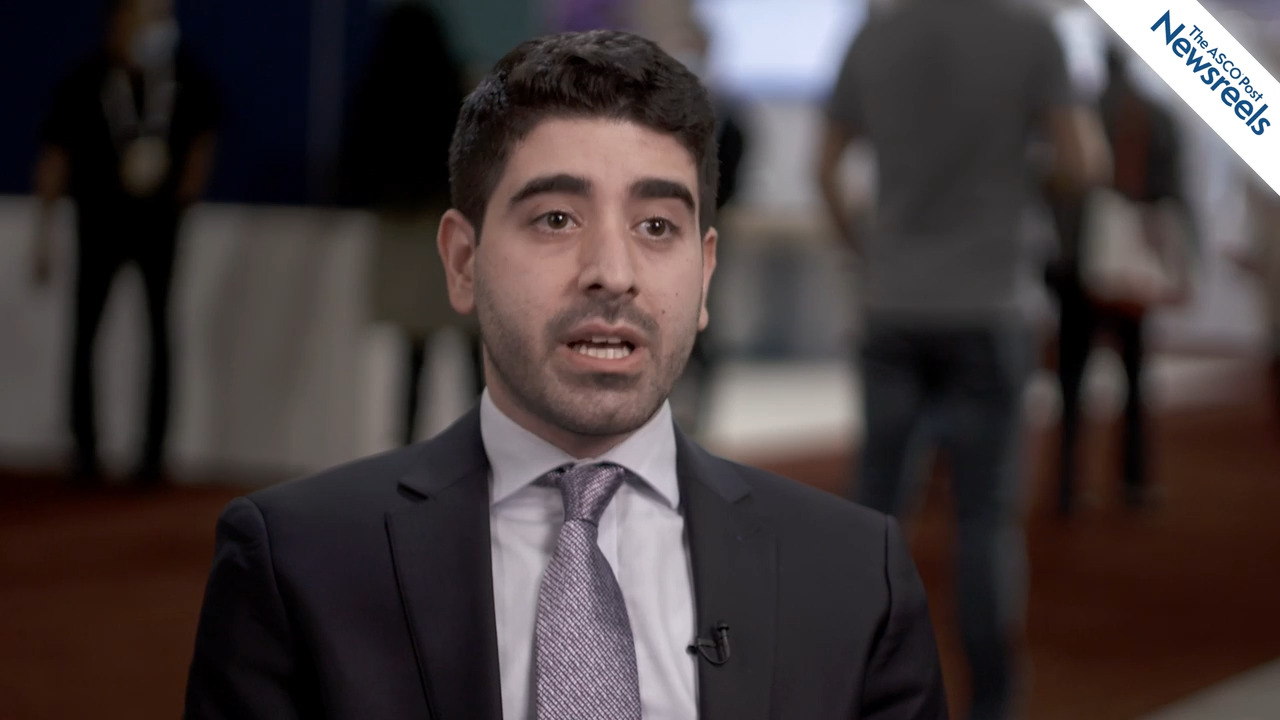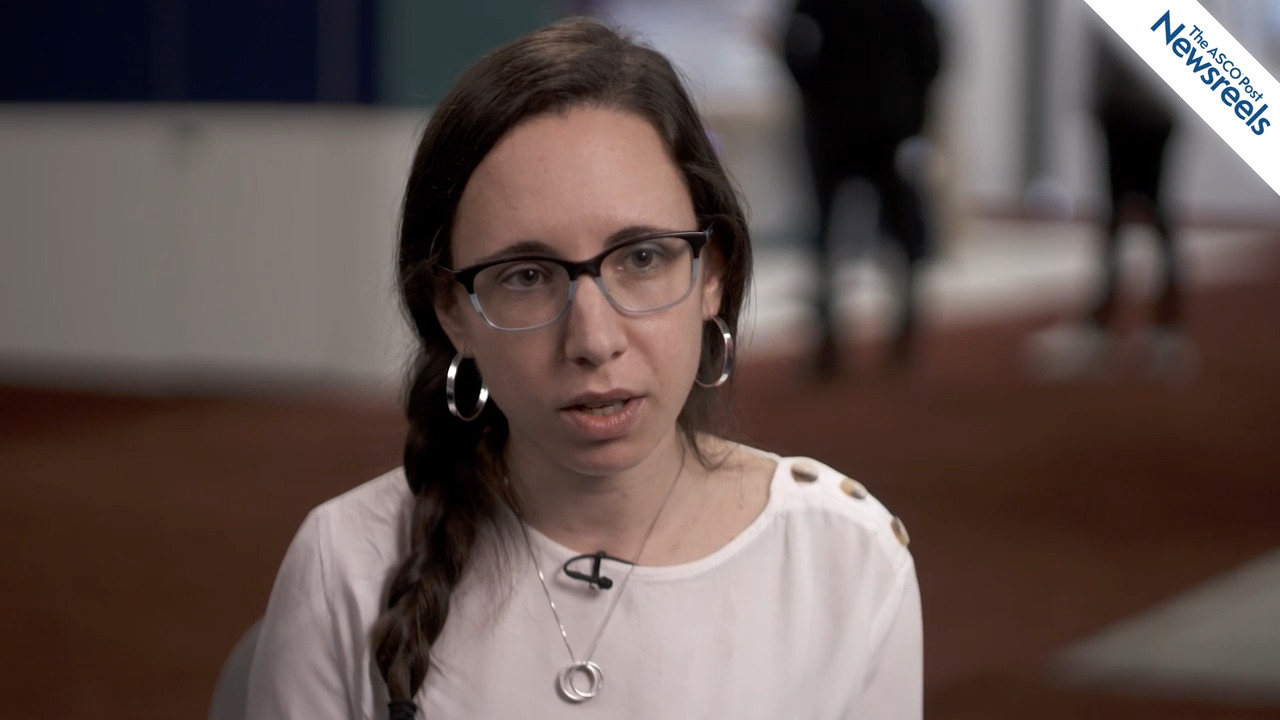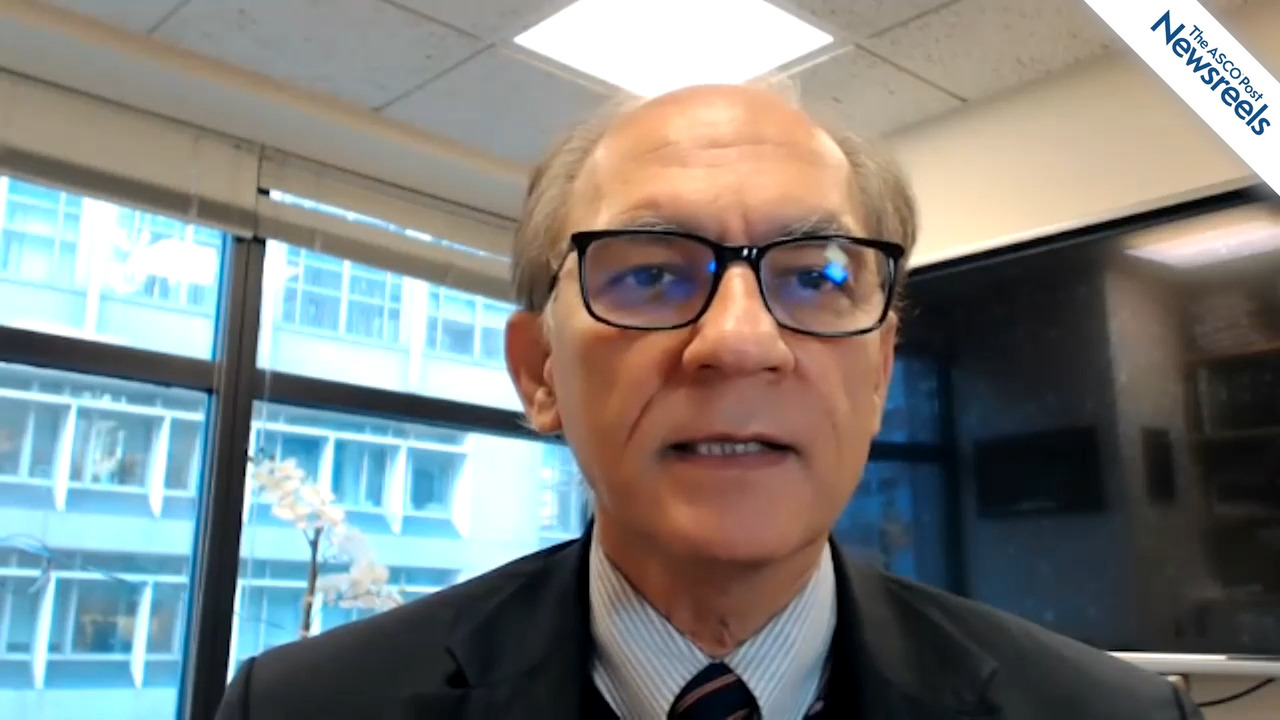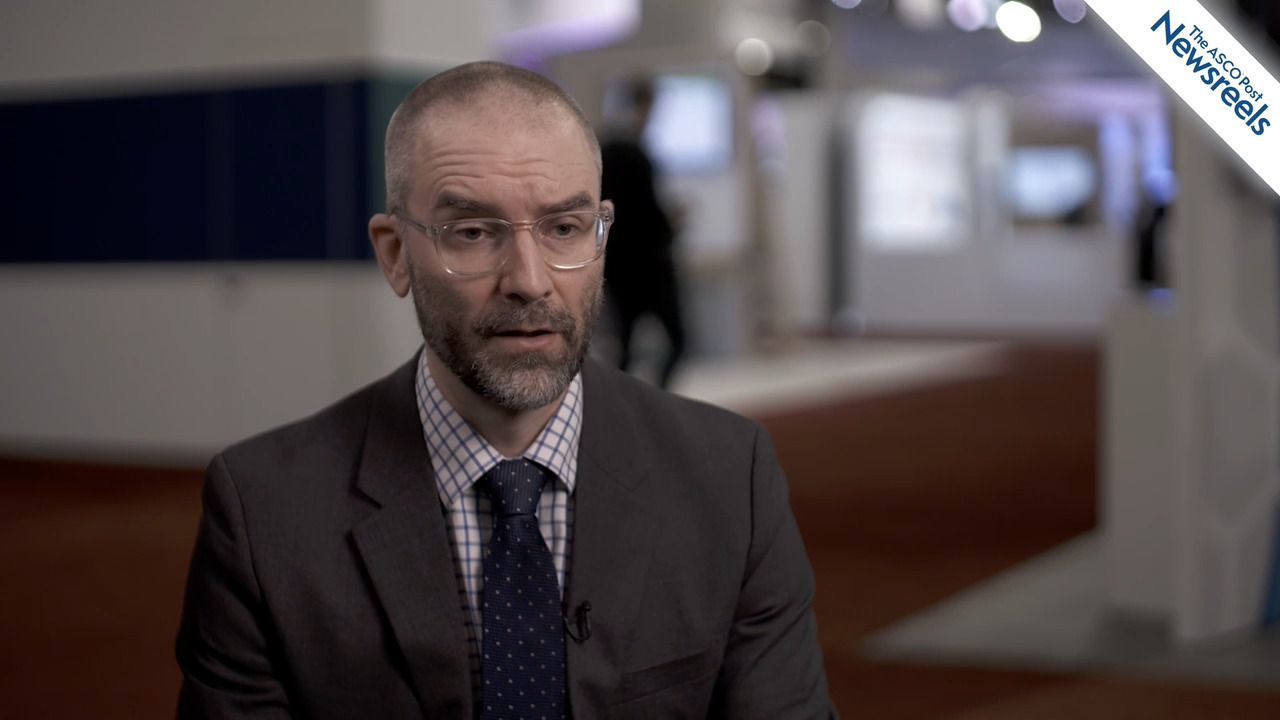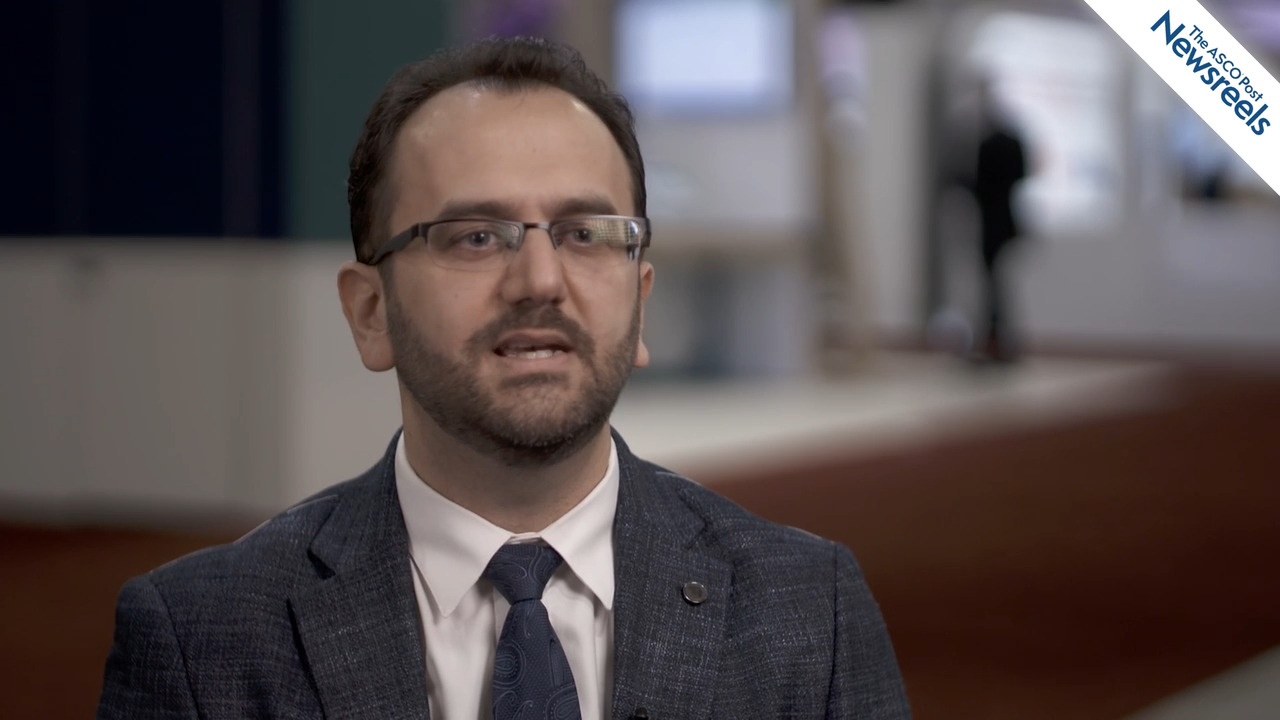Romanos Sklavenitis-Pistofidis, MD, on Smoldering Myeloma: Identifying Biomarkers of Response to Immunotherapy
2021 ASH Annual Meeting & Exposition
Romanos Sklavenitis-Pistofidis, MD, of Dana-Farber Cancer Institute, discusses study findings on a next generation of clinical assays to assess both tumor biology and immune state, as well as common clinical biomarkers in the marrow or blood. These biomarkers may accurately predict which patients with smoldering multiple myeloma might benefit from early treatment, monitor response to immunotherapy, and improve patient outcomes (Abstract 330).
The ASCO Post Staff
Tarek H. Mouhieddine, MD, of The Mount Sinai Hospital and The Icahn School of Medicine at Mount Sinai, discusses data that suggest patients with heavily pretreated, predominantly triple-class refractory multiple myeloma who relapse after treatment with bispecific antibodies may still have good outcomes when sequentially treating with other immunologic treatments (Abstract 821).
The ASCO Post Staff
Alba Rodriguez-Meira, DPhil, of the University of Oxford, discusses a comprehensive analysis of the genetic, cellular, and molecular landscape of TP53-mediated transformation, providing insights into the evolution of chronic hematologic malignancies toward an aggressive acute leukemia. Because TP53 is the most commonly mutated gene in human cancer, these findings may well be of broad relevance (Abstract 3).
The ASCO Post Staff
Nikhil C. Munshi, MD, PhD, of Dana-Farber Cancer Institute, discusses the findings from a large nationwide Veterans Affairs study, which showed that, for patients with multiple myeloma, the effectiveness of the COVID-19 vaccine is reduced, likely due to patients’ immunosuppression. Dr. Munshi describes what next steps should be taken (Abstract 400).
The ASCO Post Staff
Joe Schroers-Martin, MD, of Stanford University, discusses his latest study findings, which show that follicular lymphoma driver mutations are detectable in blood and saliva years prior to a clinical diagnosis. These data build on previous work and suggest that researchers may be able to stratify people at elevated risk of clinical malignancy (Abstract 709).
The ASCO Post Staff
Musa Yilmaz, MD, of The University of Texas MD Anderson Cancer Center, discusses study results suggesting that quizartinib with decitabine and venetoclax is active in patients with FLT3-ITD–mutated acute myeloid leukemia and that RAS/MAPK mutations continue to drive primary and secondary resistance (Abstract 370).
